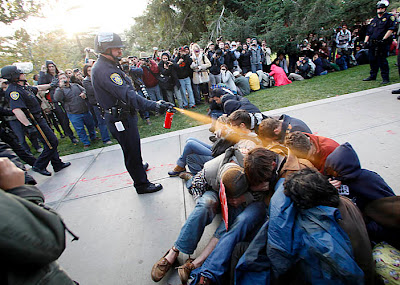The original film was very important for my personal development and I would like to be able to say more about this once Prometheus is released. All I will say for now is that my expectations are not that high for this prequel because the key to the original's success was that it was largely based on H.P. Lovecraft's maxim, "atmosphere, not action." So no need for exhaustive explanation either, which forces us to use our own imaginations instead. But how can the prequel respect this when everything so far suggests it will be attempting to explain everything. Drawing on the term used by sci fi critic Peter Nicholls, I can also say that what really fired my imagination as a youngster was the Nostromo crew encountering "a big dumb object" i.e. the Space Jockey on Acheron LV-426. This incredible sequence, the greatest I have ever seen, sticking with the terminology favored by Nicholls, Clute et al, instilled in me a "sense of wonder". This was tempered by the knowledge that the warning signal meant there was no possibility of being enchanted by the kind of "cargo cult" qualities associated with the properties of other mysterious xenoarchaeological artifacts, not least the monolith in 2001: A Space Odyssey. Unlike Dave Bowman then, there is no lebensphilosophie style personal transfiguration from crossing a threshold, given how everyone who walks around the derelict is eventually killed by the alien; starting with the necrogenesis scene (better known as the "chestburster scene"), when male crewmember Kane gives "birth" to the alien that implants itself in his body in the derelict's egg chamber (although it could be argued on the basis of the deleted scene featured on the DVD that Captain Dallas [and Brett] is forced to undergo a metamorphosis by being incorporated into the creature's life cycle; however, this is so horrible that it is probably as far from the "exalted" sense implied by transfiguration as one can imagine).
Mentioning Clute et al shows that over the years I've realized that Alien draws on certain conventions of science fiction, but this has only enhanced my appreciation of its qualities. In addition to being so prescient, as all good science fiction should be, with its theme of bio-weapons meets corporate malfeasance, I credit the film a lot for violating the formerly pristine, white environments usually favored in depictions of space travel, through its spectacular focus on body horror. And this raises another intriguing question: whose sense of horror is it really? Perceptive critics have responded by examining the racial coding of the xenomorph as black, whereas feminists are fascinated and appalled in equal measure by the film's equating of technology and reproduction. I'd recommend reading this comparable essay on John Carpenter's The Thing for more of a sense of the "body horror" that might be at stake in Alien as well (The Thing, incidentally, shares with Alien a linkage back to the xenoarchaeological themes of Lovecraft's "At the Mountains of Madness"). Eric White ties together the issues of racial/species/gender identity in relation to evolutionary theory:
http://www.depauw.edu/sfs/backissues/61/white61art.htm
"After surveying the outer systems for many long years, a team finally made it back to Earth to find out why they had lost all contact. This pic was taken in China, but the team discovered identical statues in every major city around the world. The cities had all been reduced to smoking ruins and the atmosphere was no longer breathable. It seems Earth's fate had something to do with the mysterious Cthulhu cult which had spread during the team's absence...."
It isn't clear to me though whether the author's enthusiasms are really stopping short of the kind of Deleuzian excesses that we saw Steve Fuller recently criticizing in the interview I posted on this blog. Sci fi then can clearly be mobilized either in support of, or to express horror at, the kind of projects we humans strive for in the future. It can be worthwhile taking the time to seriously consider its implications.
Well, I guess until the new film comes out, I'll continue when I have moments to myself to take a relaxing walk, plotting my own little psychogeographies as I go by listening to and dreaming about certain music that for me evoke the scene of the crew approaching the derelict (such as the opening track of The Tower by Mordant Music). And speaking of artifacts, don't masks have a slightly xenoarchaeological quality about them as well, in that they too can function as gateways/portals in rituals and fantasy literature that can open the wearer up to forces with the power to transform personal identity? But as I've already hinted in my reference to Kane, to describe the "facehugger" in this way would be a bit of a stretch; although it was probably inevitable that someone would make this anyway (which is clever and humorous in its own way, to be sure).
These have just been a few fairly spontaneous musings inspired by my viewing of the new Prometheus trailer and then looking for a further excuse to avoid going back to work. Not long ago, for the very same reasons, I threw together the following little piece, which combines a couple of motifs from Alien and Lovecraft. It doesn't really look too bad on a big monitor. I thought the storyline could be something like this:



